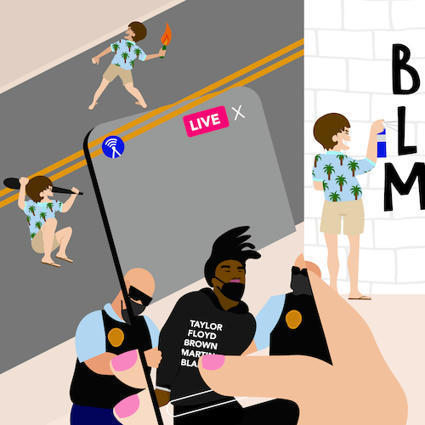Racist/racialized malinformation is the phenomenon of how we are conditioned, socialized, and repeatedly bombarded with racist and negative images and stereotypes. These stereotypes are repeated and normalized until they become malinformation. But how can these deleterious and destructive forces be eliminated? They need to be addressed and battled just as other societal ailments are, and critical cultural literacy can aid in this fight.
Via Elizabeth E Charles



 Your new post is loading...
Your new post is loading...








